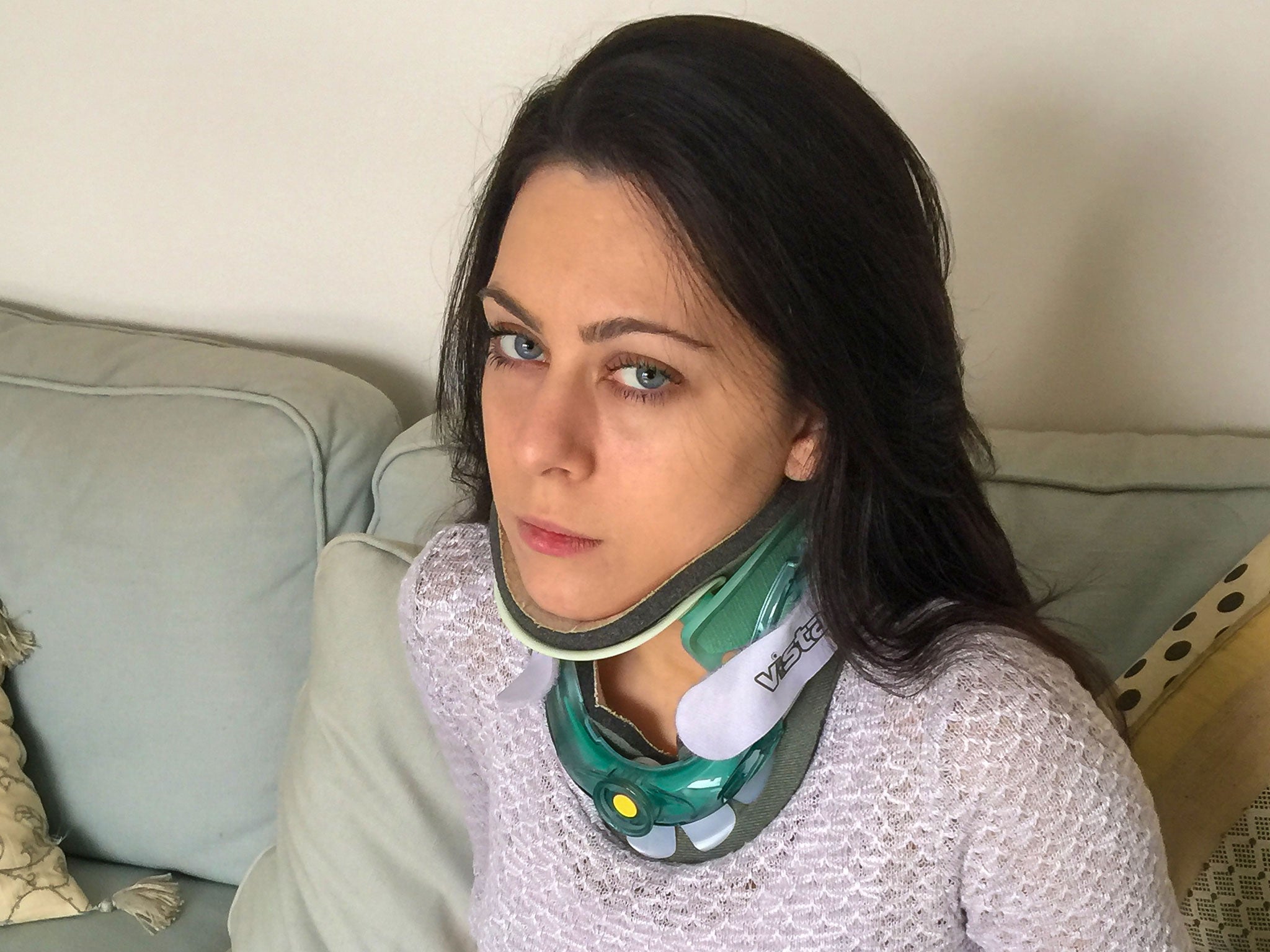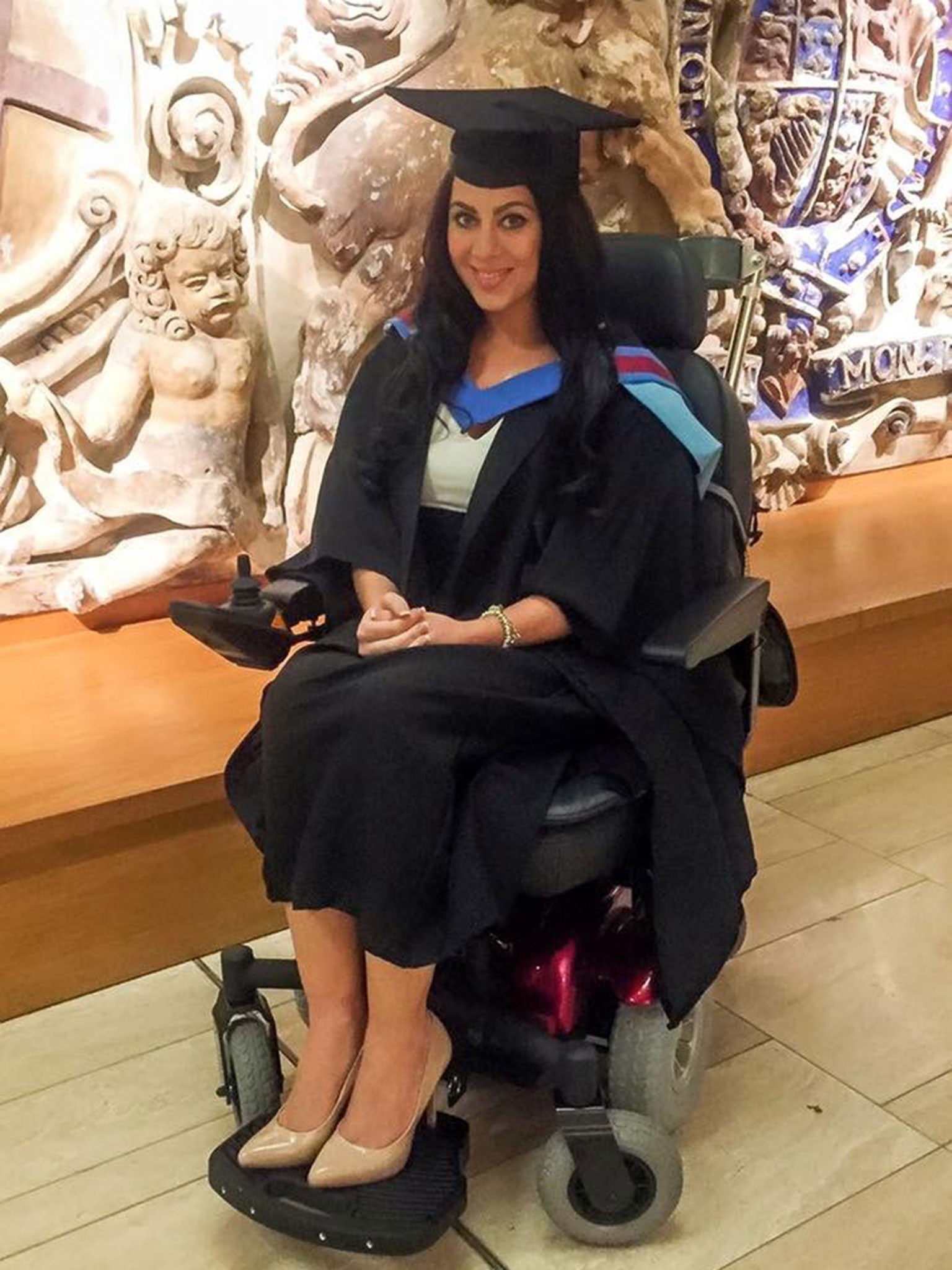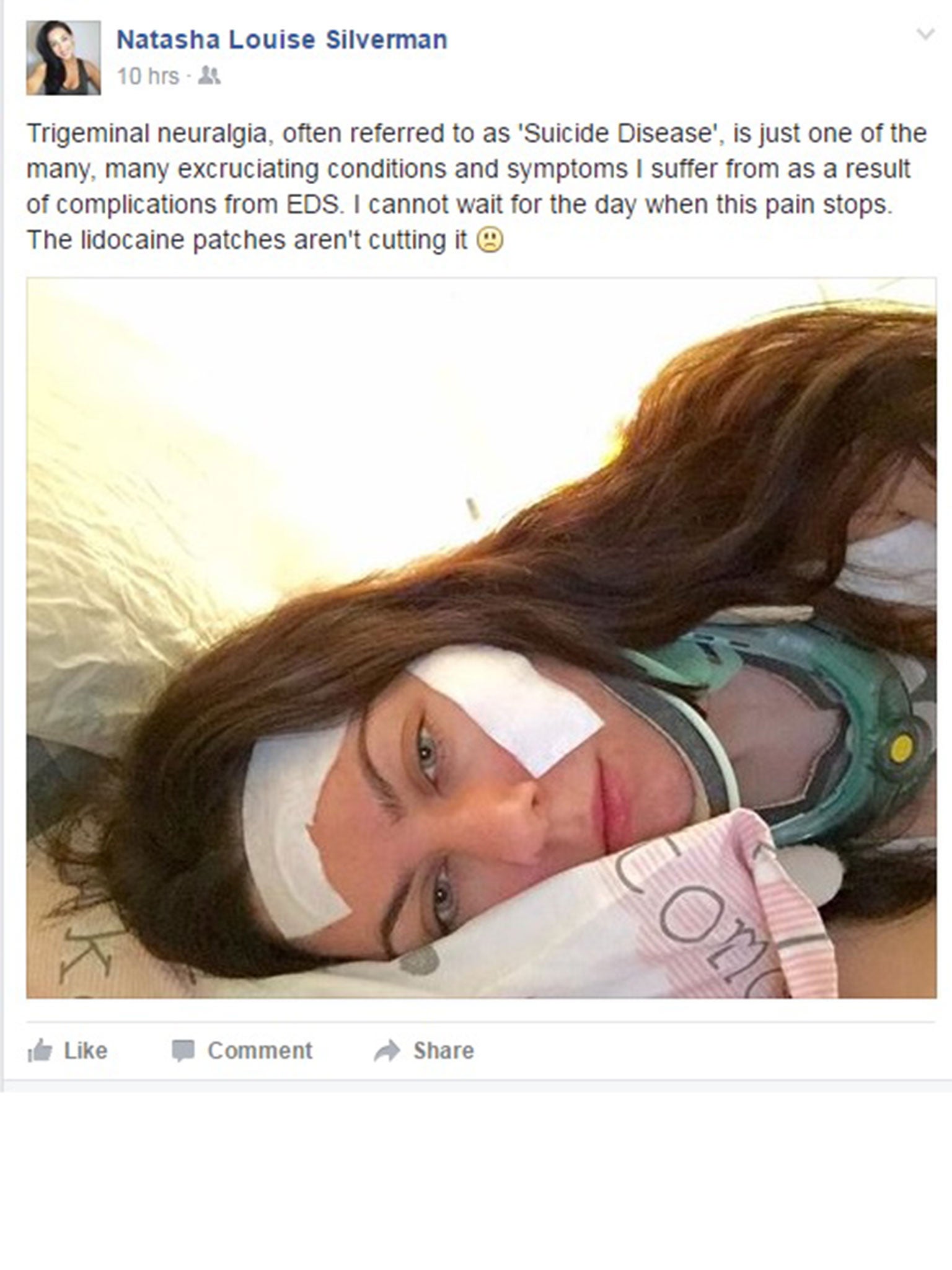Ehlers-Danlos Syndrome: Meet the woman trying to raise thousands of pounds for surgery to save her own life
Exclusive: Natasha, 29, needs three major neurosurgeries to combat a condition that has left her wheelchair-bound and reliant on a ventilator to breathe

For six years, Natasha Silverman, a law graduate with everything to live for, has been battling a little-known but devastating condition that has left her in a wheelchair and reliant on a ventilator to breathe.
Ms Silverman suffers from Ehlers-Danlos syndrome (EDS), an incurable hereditary disorder which affects the connective tissues in the body. At present, there are no EDS specialists in the UK, and she's now facing the challenge of raising thousands of pounds to fly to the US for three major neurosurgeries to drastically change - and even save - her life.
EDS, which affects around one in 5,000 people, weakens the tissue that holds the body together. It causes hypermobility and frequent dislocations of the joints, stretchy skin, problems with internal organs and constant pain, and the 29-year-old admits she is so desperate for relief that she willingly takes drugs known to trigger a potentially deadly heart condition known as 'Long QT Syndrome' ‒ or 'Sudden Death Syndrome' ‒ that could kill her.
"It’s like having to play Russian roulette with my own life, but I have no option at this point," she told The Independent. "I have so few options now."
Ms Silverman, who lives in London, was diagnosed with EDS when she was 23, having suffered from a number of seemingly unconnected health problems since childhood. "Discovering that I had an incurable genetic condition was one of the worst moments of my life," she says. "I had to come to terms with the fact that this would be my life forever, when I was just so young. It was heartbreaking."
In the following years, her symptoms worsened, with pain and increasing mobility problems leaving her disabled and unable to live a normal life. She says the condition has turned her from a vibrant, high-achieving young woman into "a frail, sick person with no hope".
"I already need to use a ventilator to help me breathe at times, and the possibility of respiratory failure, particularly if I get into respiratory distress while alone, is a very scary possibility," she says.


Last month, British single mother Jessica Kill revealed that she had just three months to raise £150,000 to pay for life-saving surgery for the same condition that is only available in the United States.
Like Ms Kill, Ms Silverman also suffers from cervical instability - as well as Long QT, or 'Sudden Death Syndrome', Trigeminal Neuralgia, also known as 'suicide disease', Tethered Cord Syndrome and Autonomic Dysfunction - and is now trying to raise at least £65,000 to travel to America for three major neurosurgeries by an EDS specialist, as there are currently none in the UK. If she doesn't have these operations, she says, the damage could be permanent.
"I’m very fearful about my future without the surgeries," she says. "If I’m in this position at 29, I dread to think how I’ll be in another ten or twenty years, if I’m even still alive then. EDS is unpredictable and it is hard to determine how quickly I will deteriorate, but judging my how fast things have declined in the last eighteen months, I’m not feeling very optimistic. My level of pain is already unbearable and realistically, things will only get worse over time.
"My current quality of life is very poor. I’m constantly in pain, I’m unable to leave the house more than once a week and when I do, generally have to use a wheelchair. I recently fell down the stairs while my carer was out of the house and I badly hurt myself. I am becoming increasingly reliant on others, because being unable to take care of myself puts me at higher risk of a deadly injury.
"I’m very rarely able to socialise with friends or build romantic relationships [...] my 20s have been robbed from me, and my body feels like it is working against me at all times.
"Although I don’t like to think about it, the likelihood is that my life will be shortened by complications of EDS."

Ms Silverman often wears a neck brace to limit dislocations, which could be life-threatening because of their potential to compress arteries and cause a stroke or even death.
"Unfortunately, when the pain becomes intolerable the only medication that can help me has the effect of badly suppressing my breathing," she says. "This means I regularly have to make the choice between being pain-free or being able to breathe properly."
She hopes eventually to have titanium rods fitted in her spine which could stabilise her neck, relieve pain and allow her more freedom in her movements.
To help raise money for the series of expensive procedures, Ms Silverman has set up a crowdfunding campaign. She has also set up a Facebook page to educate people about the symptoms of the disease ‒ and to allow people to follow her progress.
"Although there is no 'cure' for Ehlers-Danlos syndrome itself, these surgeries can allow me to repair a great deal of the damage," she says.
"Crucially, the longer I wait to have the surgery, the higher the chance the damage will become permanent."

Ms Silverman was initially diagnosed with hypermobility, the most common form of EDS. Later tests revealed she also had Classical EDS, which can lead to organ prolapse as the tissue is not sufficiently supple enough to hold the internal organs in place.
But few people know, or have even heard of, the condition ‒ and the charity EDS UK welcomed May as 'EDS Awareness Month' to try to raise its profile.
Kay Julier, EDS UK's managing director, told The Independent: "People’s joints can dislocate spontaneously doing everyday things, like walking or rolling over in bed. Shaking someone’s hand can dislocate their fingers."
While the disease is not usually life-threatening in itself, "it can be completely disabling", Ms Julier added.
While Ms Silverman said living with EDS and her other conditions can be depressing, she hopes to use her law degree and eventually become a lawyer ‒ and she wishes desperately to one day start a family.
"I live with severe pain every day," she says. "Trigeminal neuralgia is known as ‘suicide disease’ because the pain is so severe and distressing, and that is just one of the many types of conditions and pain I suffer from. At this stage I feel that life is just not worth living and it’s becoming increasingly tough to continue in this much pain.
"The thought that I will somehow be able to raise the money [to have surgery] is what keeps me going."
Join our commenting forum
Join thought-provoking conversations, follow other Independent readers and see their replies
Comments